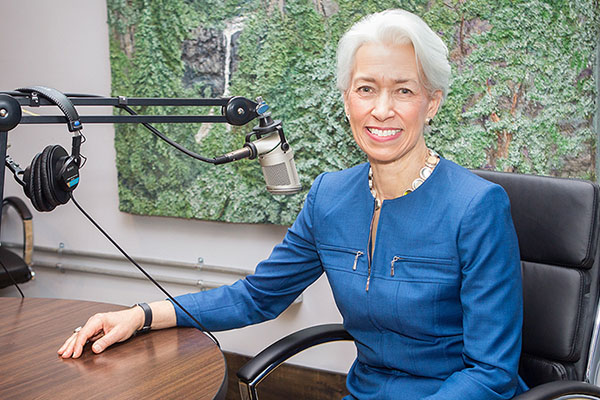Visiting the Appalachian State University podcast studio, anthropologist and author Nina Jablonski posits that human evolution has taken off like the world’s fastest sprinter, dramatically changing the human face of the earth. In this far-ranging interview, she explores skin color and race and the roles they’ve played socially, biologically and from a health perspective over the last 200,000 years.
World-famous anthropologist on race, genetics and the genealogy of primates.
Transcript
Megan Hayes: Dr. Nina Jablonski is Evan Pugh University Professor of Anthropology at Pennsylvania State University. A biological anthropologist and paleo-biologist, she studies the evolution and adaptations to the environment in old world primates, including humans. For the last 25 years she has pursued questions in human evolution not directly answered by the fossil record. Foremost among these being the evolution of human skin and skin pigmentation.
MH: Dr. Nina Jablonski, welcome to Appalachian and welcome to SoundAffect.
Dr. Nina Jablonski: I’m thrilled to be here, thanks.
MH: You’re a scholar of evolution. I was wondering if you could talk about the evolution of your scholarship?
NJ: As a child I was fascinated by the natural world. I walked around out of doors all the time and, living in upstate New York, I collected fossils that were occurring naturally outside of my doorstep, literally. I found these fossils so beautiful and so intensely interesting that I wanted to learn more about ancient life. To make a long story short, I have pursued that line for most of my life. In recent years I’ve spent a lot of time studying aspects of human evolution that aren’t easily represented or known in the fossil record. Whether they be skin or behaviors, they are extremely important to our understanding of human evolution. We have to think about this from social, biological, and health perspectives. I see it as my job to try to put modern humans in all of their exuberant innovativeness into this evolutionary context.
What do you think?
Share your feedback on this story.
About Appalachian State University
As a premier public institution, Appalachian State University prepares students to lead purposeful lives. App State is one of 17 campuses in the University of North Carolina System, with a national reputation for innovative teaching and opening access to a high-quality, cost-effective education. The university enrolls more than 21,000 students, has a low student-to-faculty ratio and offers more than 150 undergraduate and 80 graduate majors at its Boone and Hickory campuses and through App State Online. Learn more at https://www.appstate.edu.




![How NCInnovation Is Rethinking Economic Development in North Carolina [faculty featured]](/_images/_posts/2026/02/rethinking-economic-development-600x400.jpg)







